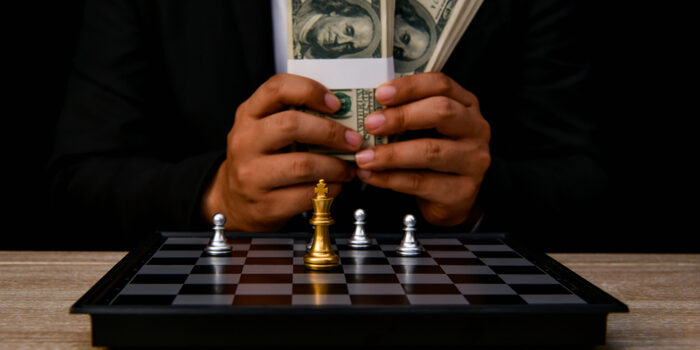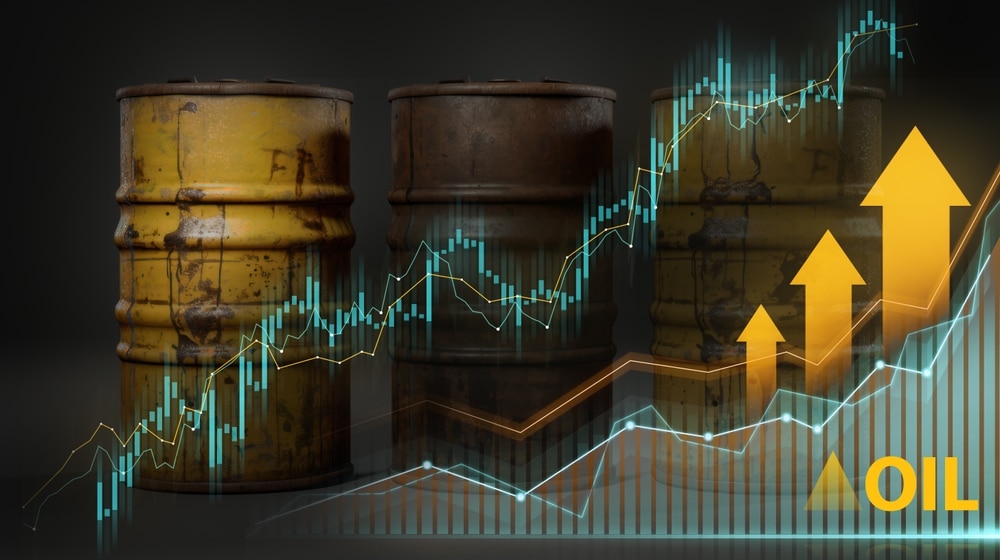
My Personal Game Plan for the Coming Economic Crisis
If you find yourself feeling anxious about the near term economic horizon post-COVID-19, you're in the same position as everyone else, including the so-called "experts." What we're seeing is a confusing market, and a market entirely confused. Sharp rallies take place despite dismal economic data. Large volatile fluctuations erasing any notion of directional significance. And when it comes to attempting any form of intelligible forecast, we don't have enough information to guess what might happen in the next quarter let alone the coming year.
Economists seem divided on the current state of the economy, some calling for a recovery, others calling it a prelude to another great depression. In the past, when panic selling had brought equities down to bear market levels, we typically see large investors, like Warren Buffett, buying with a great deal of optimism, while retail investors are too spooked to jump back in. Today's situation shows the opposite, with the retail crowd confident of recovery while Buffett, Dalio, and a host of other big players holding off on stock purchases.
At the precipice of yet another potential economic meltdown, it would be foolish to remain optimistic. By the very same token, seeing the market from a pessimistic perspective would be equally foolish. There's no place for personal market sentiment when the situation is as perilous as the one we're currently facing. There's room only for objectivity, prudence, and shrewd market opportunism.
In light of this, my personal financial strategy to get through the COVID-19 economy is relatively simple, boiled down to just three rules. They're not unique, nor are they sophisticated or complex. They're just simple and effective--and in my opinion, that's all that counts. Most importantly, they're aimed at hedging one factor that mainstream investors, strangely enough, are not paying enough attention to: the erosion of the dollar's purchasing power.
The Dollar's Purchasing Power is Eroding Fast
As a gold investor, you're probably well aware of this. Economic stimulus by way of the printing press never ends well for the dollar. Before the summer of 2019, the Fed was quickly trying to unload its balance sheet. With pressure from the Trump administration, the Fed reversed course, keeping rates steady before loading up their balance sheet once again.
As we reported earlier in the week, from August 2019 to February 2020, the Fed's balance sheet went from $3.76 Trillion to $4.16 Trillion. That's an increase of $400 Billion in six months. But from February to May--in just three months' time--the same balance sheet now stands at $6.93 Trillion. Not even during the 2008 financial crisis did the Fed's balance sheet ever get this high. And it isn't over. The balance sheet will rise even higher, as the Fed has placed no cap on the amount of money it's going to pump into the economy. Think QE unlimited.
Ultimately, what's at stake is the dilution of the dollar.
Our purchasing power is getting destroyed, and at a pace far greater than what any equity-based return can do to compensate for it.
So, here's what I'm personally doing about it.
1 - Hold Just Enough Cash at The Bank To Cover up to 90 days Worth of Bills and Luxuries
We clearly see the banks are experiencing a liquidity crisis, according to the vast lending programs on the Federal Reserves Dashboard, recently revealed on their site here. Additionally, as of 3/26/2020 The Reserve Capital requirements for major banking institutions, with more than $127.5m+, have dropped to ZERO and now the banks are not required to keep any cash on hand for you in the event that you wanted some.


For this season I am only trusting the bank with 90 days of what it takes for me to live like a king! This includes all bills paid and any luxuries I have grown accustomed to. 30 days' worth of living expenses is all I see fit to hold in my hand in the form of small denomination bills $ 20's and $ 50's. This way, just in case the ATM stops working, I am not in a panic.
2 - Convert Cash to Gold and Silver
In light of purchasing power erosion, the logic behind this is pretty straightforward: the Fed's money printing will dilute any assets that are dollar-based--cash, bonds, stocks, you name it. Their values rest on the value of the dollar. But gold and silver both have intrinsic value that stands apart from government-issued currency.
The Fed can print and manipulate dollars, but it can't create or manipulate gold and silver.
Strangely, mainstream investors understand only half of this logic. Ever since the coronavirus crash, gold and silver ETFs have been experiencing tremendous inflows from the investors seeking a safe haven. Paper gold and silver are not the same as their physical counterpart. You can't convert them into the real metals, hence you don't own any silver or gold, just promissory notes. The only real portfolio hedge comes in the form of physical coins or bullion.
Personally, I feel safer knowing that I can access my own stash of silver and gold.
So I keep 90 days worth of living expenses in the form of gold and silver in my possession. Simply take your 90 day total from step 1 and slice it in half. Make the difference divisible by the per coin price of the Silver and Gold coins of your choosing and voila. Store these coins in a secure safe in your home next to your 30-day cash hoard with Silica Gel packets to keep your coins in pristine condition and if you don't have a secure storage facility in your dwelling I recommend a Second Amendment Gun-safe. And that brings up the next point.
3 - Keep Excess Metals Beyond 90 days Locked in Safe Storage Away From Home
Should our economy fall into depression, there will be second-order risks stemming from our financial circumstances. One of the most frightening scenarios is that our social fabric gets torn apart, possibly to a point where it's every individual, group, or family unit for itself. This is a period of looting, theft, and violence.
In that kind of world, you do not want people to find out about your gold or silver stash at home. If that kind of information gets out to the wrong people...well, you know what might happen. Keep the knowledge of your private assets private. And store them in any accessible vault (keyword is "accessible") away from your home. I recommend using Delaware Depository (DDSC) an All-Risk, Fully Insured up to $1 billion, a high-end facility for Secure, Armed Bullion Storage.
DDSC in Wilmington Delaware allows you quick access to cash from your Gold and Silver, which can be wired into any checking or savings account of your choosing, within hours. It also gives your family the security of having beneficiaries designated if anything were to happen to you.
Finally, there's one other thing to keep in mind: every crisis comes with an opportunity. Did you know that more millionaires in America were made during the Great Depression than any other time in history? Should we fall into an economic depression, who wouldn't want to exploit such an opportunity?
The Bottom Line
Preparing for any financial disaster isn't rocket science. It's all about trying to hold on to assets (gold and silver) that'll retain the greatest value when all other assets fall. It's about staying safe, and keeping your money safe. And last, it's about finding and exploiting opportunities for wealth creation even during the bleakest moments of financial existence. So, that's my personal game plan. What's yours?












